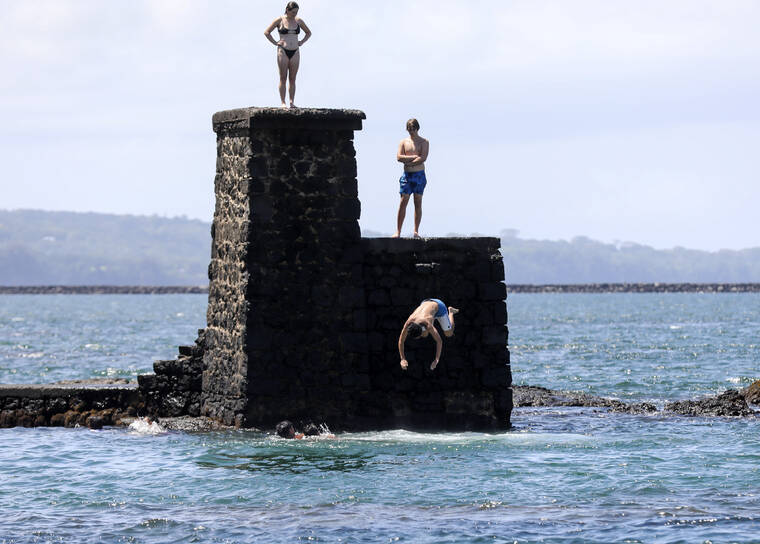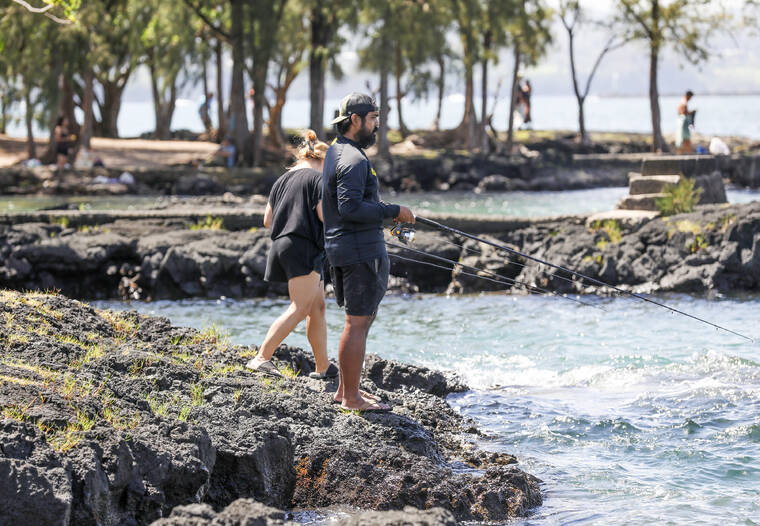June brought normal to above-average rainfall for coffee belt


HILO, Hawai‘i — The summer dry season “kicked into high gear during June.”
That’s according to Kevin Kodama, senior service hydrologist for the National Weather Service in Honolulu.
“Many areas had below average rainfall, even along the normally rainy windward slopes,” Kodama said. “With the exception of a couple of areas, it looks like the Big Island is starting to dry out.”
June rainfall totals at most Big Island gauges were below average for the month. The locations where rain fell in near- to above-average amounts were along the lower Hamakua slopes and along the Kona slopes south of Hualalai.
Locations that experienced robust rainfall in June include Honoka‘a, with 6.26 inches — 135 percent of its normal June rainfall — and Laupahoehoe, with 6.86 inches, 83 percent of its June norm.
Three of the four official rain gauges in the Kona coffee belt — which has its wet season during the summer — had normal to above-average rainfall for the month.
Waiaha led the way with 7.82 inches, 142 percent of its June average. Kealakekua and Honaunau recorded 6.35 and 6.12 inches, respectively, both slightly above their June norms. Kainaliu, on the other hand, measured just 3.82 inches of rain for the month, 66 percent of its usual 5.8 inches.
“The rainfall is definitely affecting (coffee) trees,” said Bill Myers, CEO of Heavenly Hawaiian Coffee in Holualoa.
“It’s something that we’re now watching closely. You’re seeing very, very heavy cherry that is breaking some of the branches,” he added.
Myers said his farm is harvesting, but “doing it in little bits.”
“Something else the rain has done, instead of getting full rounds of picking, we’re doing it in little mini-rounds. The downside of this is that there is not enough coffee cherry being picked right now to pay people by the pound, so we have to pay pickers hourly, which raises the cost of picking,” he said.
“Cherry is ripening nicely, but it’s doing it in increments instead of all at the same time. We had multiple flowerings in the late winter, early spring because of the rainfall, which has translated into this.”
The western portion of Ka‘u also had higher-than-average rainfall for June. Kahuku Ranch reported 3.93 inches of rain, almost twice its June norm. Lower Kahuku had 4.29 inches, slightly above its June average.
At the eastern end of Ka‘u, Kapapala Ranch had just 1.35 inches for the month, while Pahala, the center of Ka‘u’s coffee production, had just 1.06 inches, half its June norm.
Elsewhere in Kona and Kohala, rainfall was less abundant.
Ellison Onizuka Kona International Airport at Keahole tallied 0.35 inches, less than half of its norm for the month, while Kaupulehu saw just 0.22 inches, just 17 percent of its usual June.
Puuanahulu, upslope in North Kona, had a paltry 0.02 inches, just 1 percent of its average, while the four Pohakuloa gauges reported 0.28, 0.29, 0.05 and 0.03 inches.
The NWS drought monitor shows much of the area in D2, or severe drought conditions. That’s led to wild pigs, sheep and goats congregating along the Daniel K. Inouye Highway in search of food and water.
On the windward side of the Big Island, gauges almost uniformly recorded below average totals for the month.
Hilo International Airport reported 3.38 inches, 46 percent of its June norm. Pahoa measured 5.92 inches, 68 percent of its average.
It was rainier upslope, as Piihonua had 8.85 inches, Mountain View 8.53 inches, Glenwood 9.06 inches and Waiakea Uka 10.06 inches. Those numbers look good, but they’re all less than each spot averages in a normal June.
Gordon Inouye, president of Puna Flower Power, said his Keaau nursery is “holding our own” for the time being.
“We haven’t had to cut back on our irrigation yet,” Inouye said.
Inouye said his catchment system was full at 60,000 gallons prior to last month’s downturn in precipitation.
“We’re at about 20,000, 25,000 gallons now, so we’re holding our own.”
